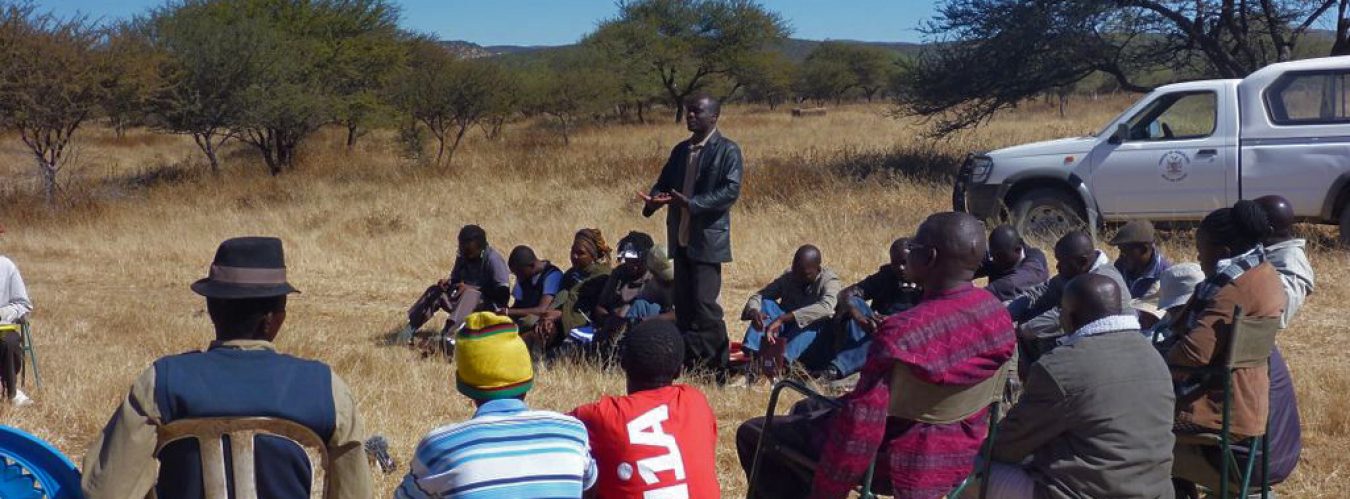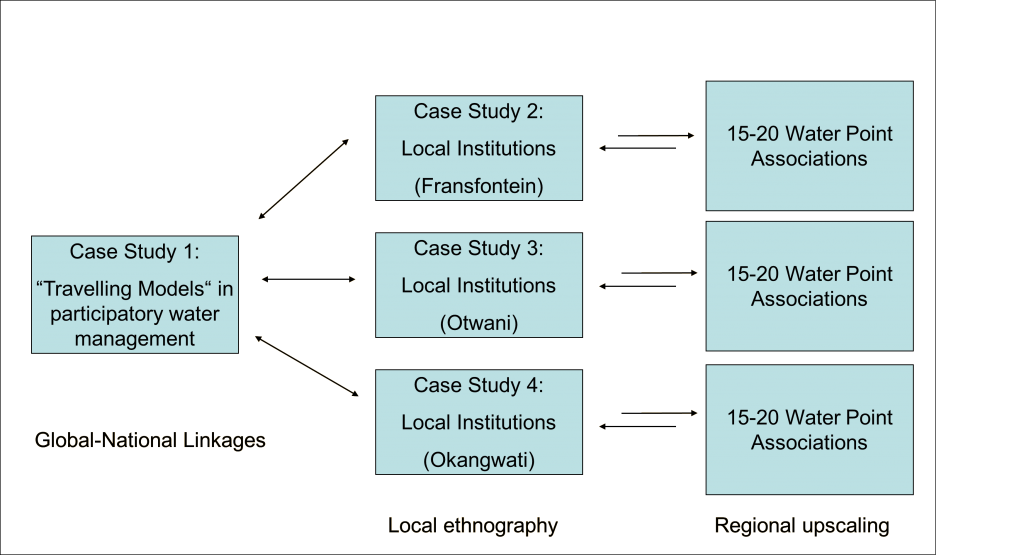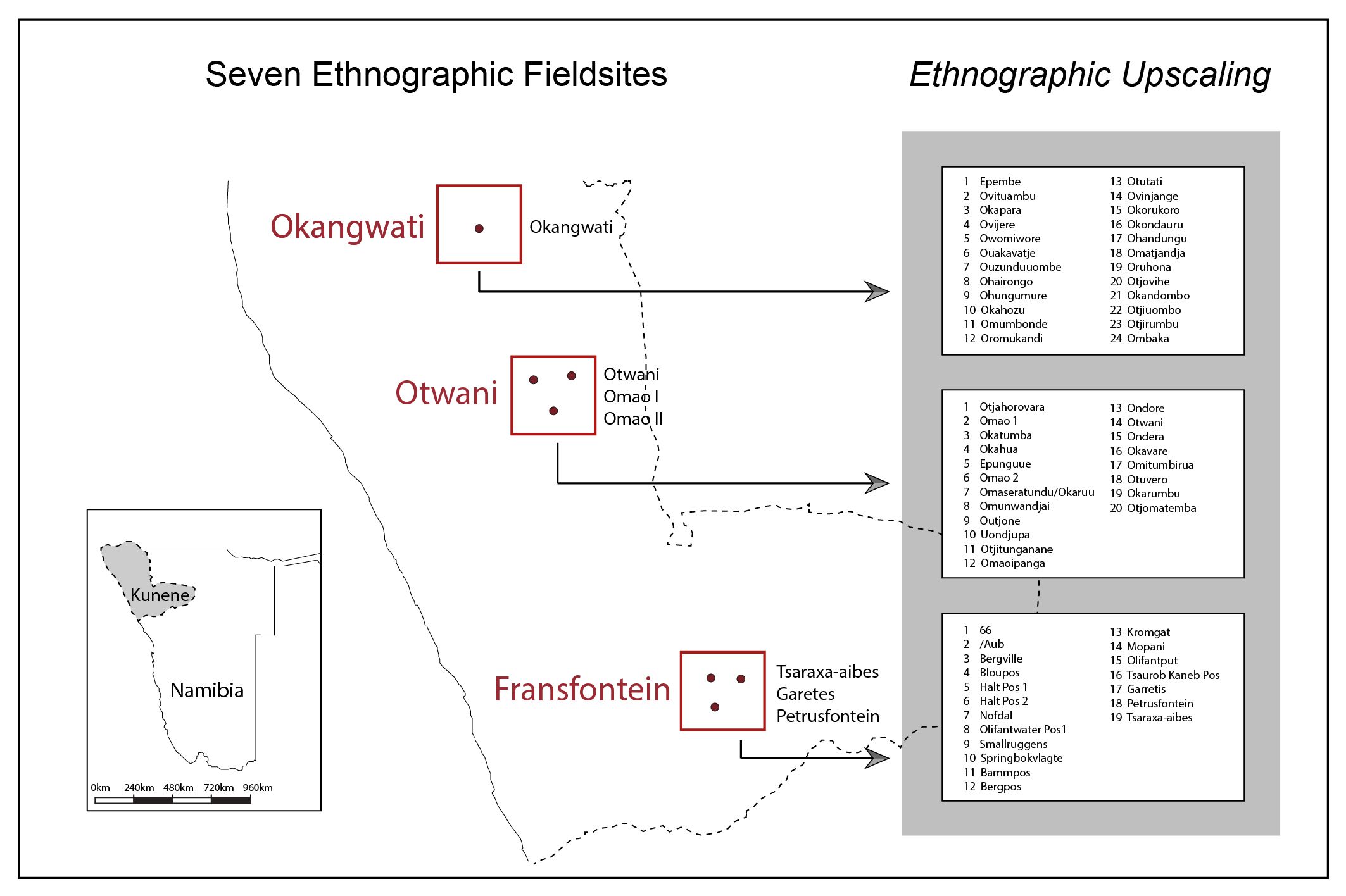A unique research design to study institutional change
The LINGS project is characterized by a unique research design. Throughout Kunene, a research team carried out comparative and longitudinal ethnographic field studies. Following a travelling models approach, these ethnographic cases can be linked to political developments on regional, national and global scales. Furthermore, ethnographic field studies (n=7) are combined with larger scale comparison conducting an upscaling in n=57 pastoral communities. Long-term research covers a period of nine years (2010-2019).
In depth-ethnographic field studies and travelling models
In order to better assess the differences and similarities of institutional emergence and change in the Kunene region, three main research areas were selected (Fransfontein, Otwani, Okangwati). Together, they represent the overall ethnical, economic and ecological spectrum of the region. Since 2010, we have been conducting intensive ethnographic research in seven communities throughout these areas. Main field phases took place in 2011 and 2013.
Additionally, a fourth field study focused on the emergence of global models of water governance and their travel to rural Namibia. The study explores the ways in which concepts, ideas and models were and are being translated and transformed between international, national, regional and local scales, and how they impact upon the way water is being managed by rural communities in Kunene.
Standardized research tools
Since the overall aim of the project is to explain institutional change through systematic comparison, standardized research tools were developed for the long-term field studies in the Fransfontein, Otwani, and Okangwati areas. These include:
- Ethnographic census and social network questionnaires to analyze the economic and social organization within the communities
- Detailed interview guidelines to grasp water management practices and related institutions as well as oral history guidelines for their historic reconstruction
- The investigation of central cognitive concepts like natural resources, community, sustainability, fairness, success
- Etic and emic indicators of institutional success
Larger-scale comparison
Based on the results of the first research phase (2010-2012), we designed an upscaling-questionnaire to investigate water management and the distribution of certain institutional phenomena on a larger scale.
In 2012 and 2015, we conducted a regional upscaling in 57 communities, covering an area of approximately 250km² around Fransfontein, Otwani, and Okangwati.
The interview guide contained three sections, combining focus group meetings as well as interviews eliciting information on
- Rules of water management and the composition of organizational structures for water governance
- Socio-economic circumstances of water management
- Satisfaction of the community members with their institutional arrangements as well as conflicts communities had experienced or observed


